2019-10-22 5'08''
What is it like to work as a panda breeder? We contacted the 'celebrity' panda breeder – "Grandpa Tan" for an inside glimpse.
75315238
http://mp42.china.com.cn/video_tide/video/2019/10/23/201910231571818259766_408.mp4
Recently, an article titled the "Top 10 Most Enviable Occupations" went viral on the Internet. The article listed the "Top Ten Best Occupations" voted by netizens, among which panda breeders topped the list. It's said that no job can be more fun than being around China's 'national treasure' every day. However, what is it really like to work as a panda breeder? We contacted the 'celebrity' panda breeder – "Grandpa Tan" for an inside glimpse.
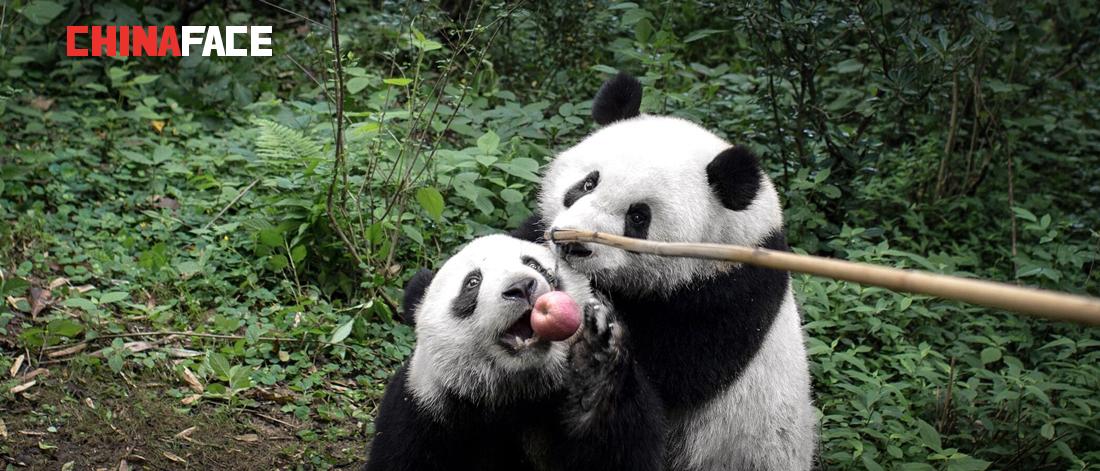
photo credit to: Zhang Ruomeng
At six in the morning, the City of Chengdu just woke up, and it was still drizzling outside. Grandpa Tan grabbed a quick breakfast in the cafeteria and started his day. His first task was to patrol the "Panda Villa" and check the electricity of each grid one by one. Grandpa Tan, dressed in a blue uniform, seemed to be a real expert. He said: "This is my 20th year working here. I know every flower and every tree." When asked about why he's called "Grandpa" when he's not even 50, this well-built breeder smiled shyly: "I have brought up generations of pandas, so I am literally a grandpa to them. That's why many panda lovers call me Grandpa Tan. Some people say that I am an Internet celebrity, but that doesn't change anything. I would just say hi to anybody who calls me Grandpa Tan."
When we returned to the panda house, we found many pandas were still huddled in their beds. Grandpa Tan had to start his second task for the day. He changed into a specially made uniform and began his daily poop-cleaning. Pet keepers in China often label themselves facetiously as a 'poop-picker', but Grandpa Tan's poop-picking is not something an average pet keeper can do. He said that an ordinary panda usually produces dozens of kilograms of feces a day, and he's responsible for nine pandas. The feces cannot be thrown out straight way. They need to be weighed promptly every day to see if there's anything unusual. If he finds any weight abnormalities, he needs to watch the pandas closely to see which one isn't eating enough.
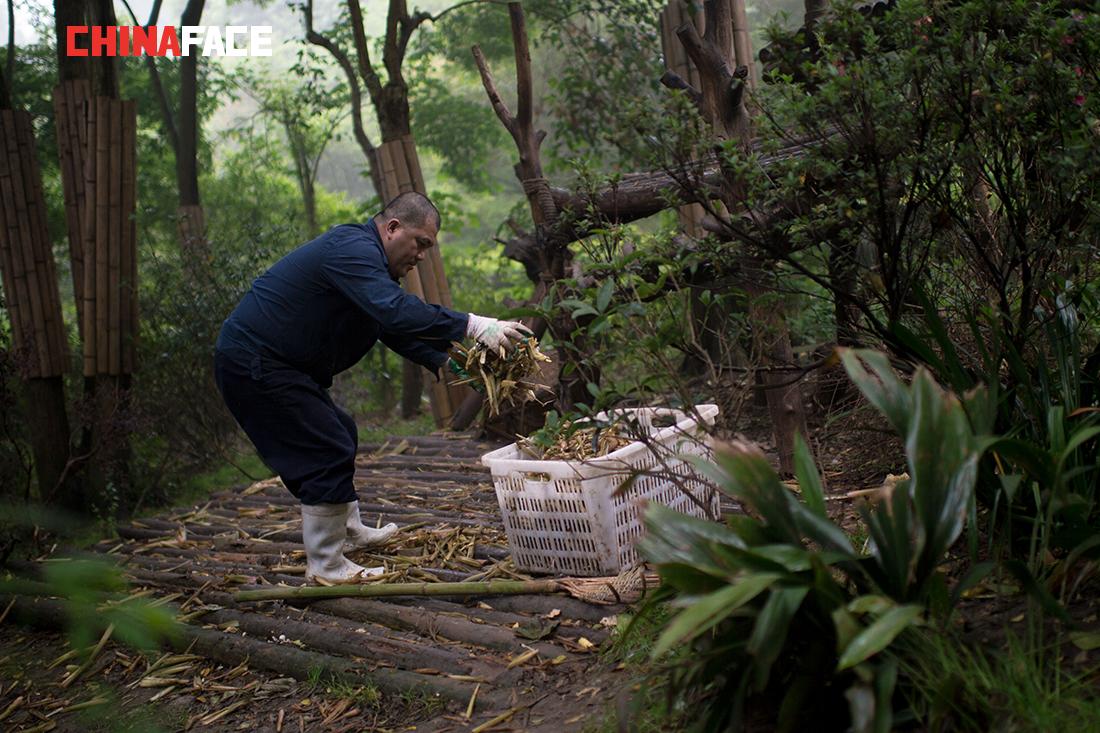
photo credit to: Zhang Ruomeng
After cleaning up dozens of kilograms of feces and placing an equally heavy amount of fresh bamboo shoots in the "Panda Villa", the nine cute pandas woke up one by one. Whenever Grandpa Tan approaches the nest, they make some cute noises like little kids who want attention from their parents. Now Grandpa Tan, like a parent good with kids, asked the nine little pandas to weigh themselves. As they heard Grandpa Tan's unique voice calling, "Come here, over here", the panda cubs lined up and stepped on the scales. Grandpa Tan said, "I am often asked how I can distinguish between them. My secret is to look at their noses. Some pandas have black spots on their noses while others have none. And also the shape of their faces. In fact, if you look closely enough, you'll see that every panda is unique."
Before visitors entered the zoo, the nine pandas had already been put out in the "Panda Villa" for zoogoers to watch. When the small door of the animal house leading to the "Panda Villa" was opened, several pandas turned to look at their Grandpa Tan, like children who are dependent on their father. They were so reluctant to leave him.
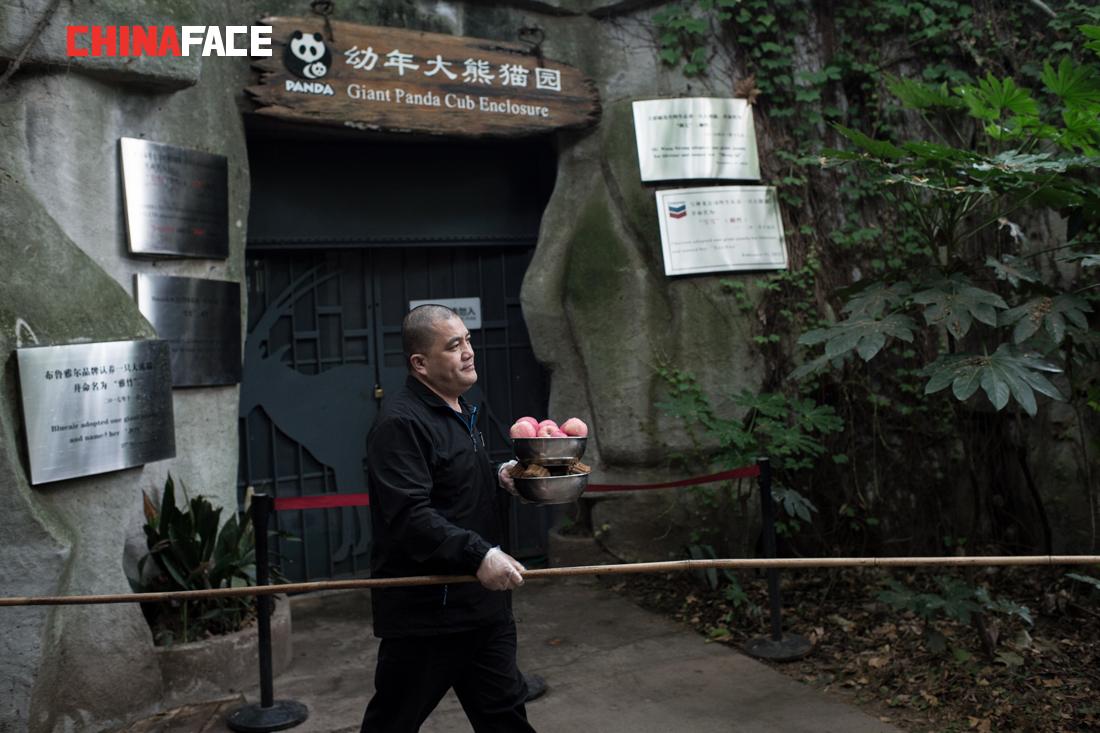
photo credit to: Zhang Ruomeng
At noon, Grandpa Tan has his own "performance" at the Panda Base. The so-called panda fishing is a lovely episode in the story of Grandpa Tan and his pandas. Panda-fishing means holding a long bamboo pole with an apple inserted into the other end with a bamboo stick. The apple dangles above the pandas, forcing them to stand on their hind legs.Grandpa Tan said that this is to increase the panda's hind limb strength so that they can perform better in breeding. Whenever Grandpa Tan starts this little act, it always wins a burst of cheers from the crowd.
There is a little room next to the Panda House. Grandpa Tan tells us it is where he usually lives. Grandpa Tan is with the pandas 28 days in a month. When talking about his own family, Grandpa Tan feels a bit guilty. "I am always busy working, so I don't go home very often at all. When my children were little, they didn't recognize me when I went home and would ask me to leave." Grandpa Tan smiled. "I hope that my family can be well, and that the pandas will grow up happy and healthy."
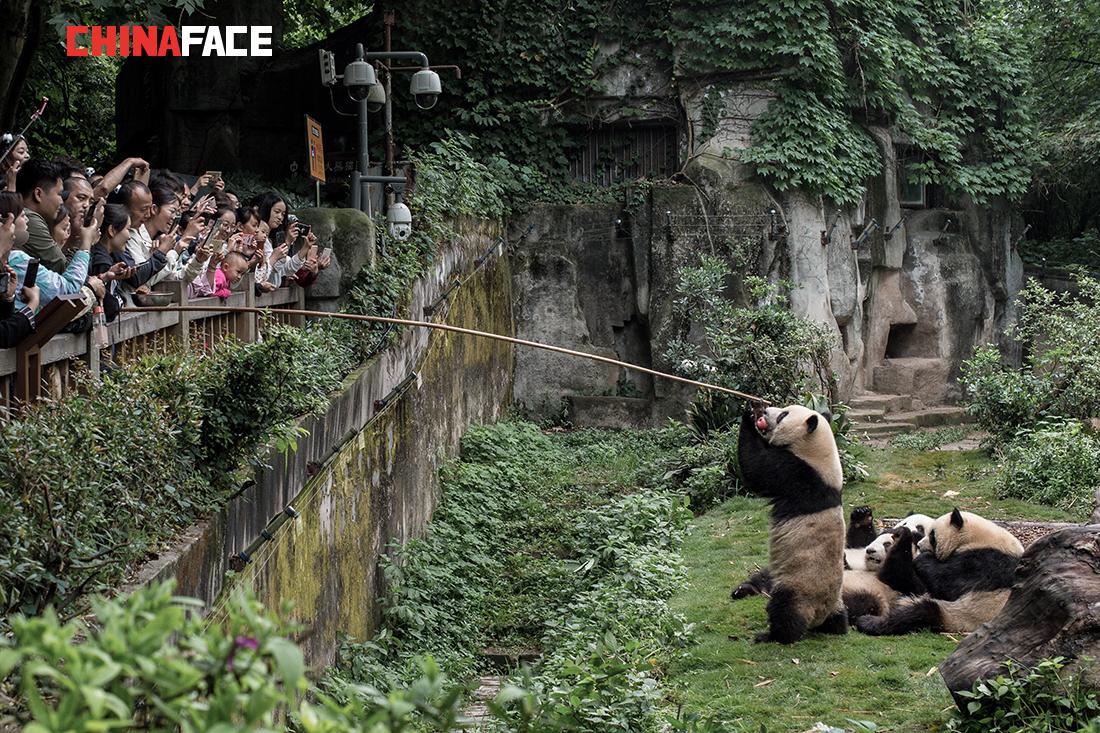
photo credit to: Zhang Ruomeng
As China's national treasure, the giant panda is a symbol of world biodiversity conservation and ecological and environmental protection. Protecting giant pandas is not only necessary for the harmonious co-existence between human beings and nature, it is also the common aspiration for people all over the world. Tireless efforts have brought the number of giant pandas in captivity to more than 500, and those in the wild to as many as 1864. There are countless staff like Tan Jintao at the Chengdu Giant Panda Breeding Research Base. They have devoted their passion and skills to protecting the giant panda. For decades, they have dedicated their careers and lives to the noble cause of guarding China's national treasure.
Presented by Wang Xiaohui
Senior Producer Xue Lisheng
Producer Dai Fan
Associate Producer Zhang Ruomeng
Director&Editor Li Kaixin
Videographer Li Kaixin Fang Xiaoqi



 Hang Kan, NPC Deputy: Cracking the Secrets of Protecting Ancient Grottoes
Hang Kan, NPC Deputy: Cracking the Secrets of Protecting Ancient Grottoes Gao Weijun: A Devoted Advocate for Yangtze River Protection
Gao Weijun: A Devoted Advocate for Yangtze River Protection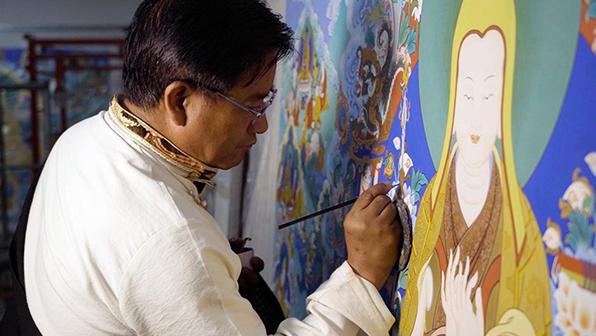 Qu Zhi: Illuminating the Thousand-Year Tradition of Thangka Art in 'Golden Valley'
Qu Zhi: Illuminating the Thousand-Year Tradition of Thangka Art in 'Golden Valley'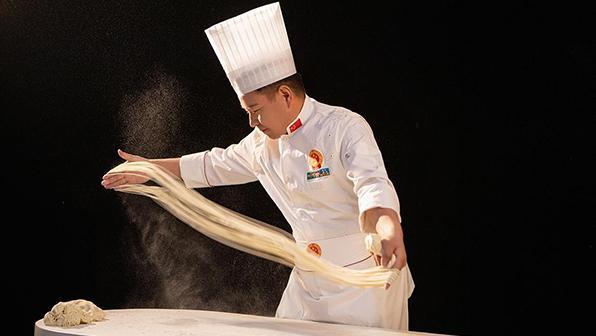 Han Yulong: A Noodle Craftsman's Tale of Honor and Happiness
Han Yulong: A Noodle Craftsman's Tale of Honor and Happiness